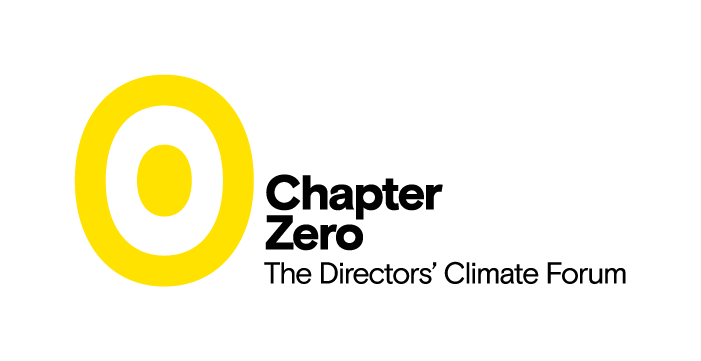
Host:
Chapter Zero
Moderator:
Jo Paisley, President, GARP Risk Institute
Panellists:
- Julie Baddeley, Chair, Chapter Zero
- Catherine David, Director of Collaboration and Change, WRAP
- Silke Goldberg, Partner, Herbert Smith Freehills
- John Hoeppner, Head of US Stewardship and Sustainable Investments, LGIM
- David Tyler, Chair, Domestic and General
As temporary members of the board of a fictitious global food manufacturing company ‘EatWell Plc’, attendees were invited to vote on strategic issues in four different scenarios between now and 2030. The outcome of their votes was then discussed by our panel of experts, who provided insights into emerging dilemmas facing companies as they tackle the changing climate environment. The expertise on our panel included an experienced company chairman, a lawyer, an investor, and a climate expert in the food industry.
Each scenario presented gave useful background, wider context and points for consideration for the ‘board’ when making their decisions. Throughout the session, there were interesting splits between the audience votes that created thought-provoking discussions from the panel.
The first scenario focused on the timing, contents and publication of the company’s net zero commitment and transition plan. The choice the board had to make encouraged questions about the importance of transparency and investor and stakeholder views. The importance of robust data behind transition plans was emphasised and the panel discussed how expectations and results can be balanced in these delicate but vital situations. Setting the right net zero target is key, both internally and for stakeholders, and companies should consider where they want to place themselves in the transition – as a sector leader or a follower.
Scenario two looked at offsetting and insetting, and explored the initial approaches ‘EatWell Plc’ could take to meet its short-term targets while keeping a view on the longer-term. This area sparked conversations on controversy, the importance of collaboration, the impact of Scope 3 and the supply chain, and securing the right expertise on the board.
The third scenario looked at the cost of carbon and encouraged the audience to consider the sorts of dilemmas that could be presented to boards on the road to 2030. The panel discussed the different issues that could arise for ‘EatWell Plc’ for setting their carbon price both too high and too low, and implications that surround both options. Understanding the company’s product portfolio sat in the centre of this discussion.
The final scenario saw the ‘board’ in 2030 vote on whether to continue producing legacy, currently profitable, high-carbon products, or to quickly close those lines of business to meet emissions reductions targets and face a short-term hit to profits. Similar to the other scenarios, additional context and consideration was provided to attendees to help them vote on this choice. The panel discussion around this encouraged reflection back on the decisions that the company had made earlier and reiterated the importance of climate thinking being embedded throughout organisations, working together, and looking ahead to futureproof the business where possible to reduce the risk of being put in these drastic scenarios and needing to employ quick fixes.
Overall, the session was thought-provoking, interactive and covered a wide range of topics for a board and non-executives to consider as their businesses address net zero targets and transition plans.
Ambition to Action: Key actions for boards
Among other areas, points that arose during the event are viewing climate change as a serious, strategic and systemic concern, and the importance of addressing supply chain emissions (as the fictional company was in the food sector this was particularly relevant).
The importance of scenario planning was noted, with the need for boards to look ahead, prepare where possible and take account of the direction of travel on areas such as carbon pricing to enable them to grasp the opportunities of the transition.
There was also a focus on the need for ambition and credibility within net zero targets and transition plans, combined with honesty and transparency.
This session summary was provided by the hosts.